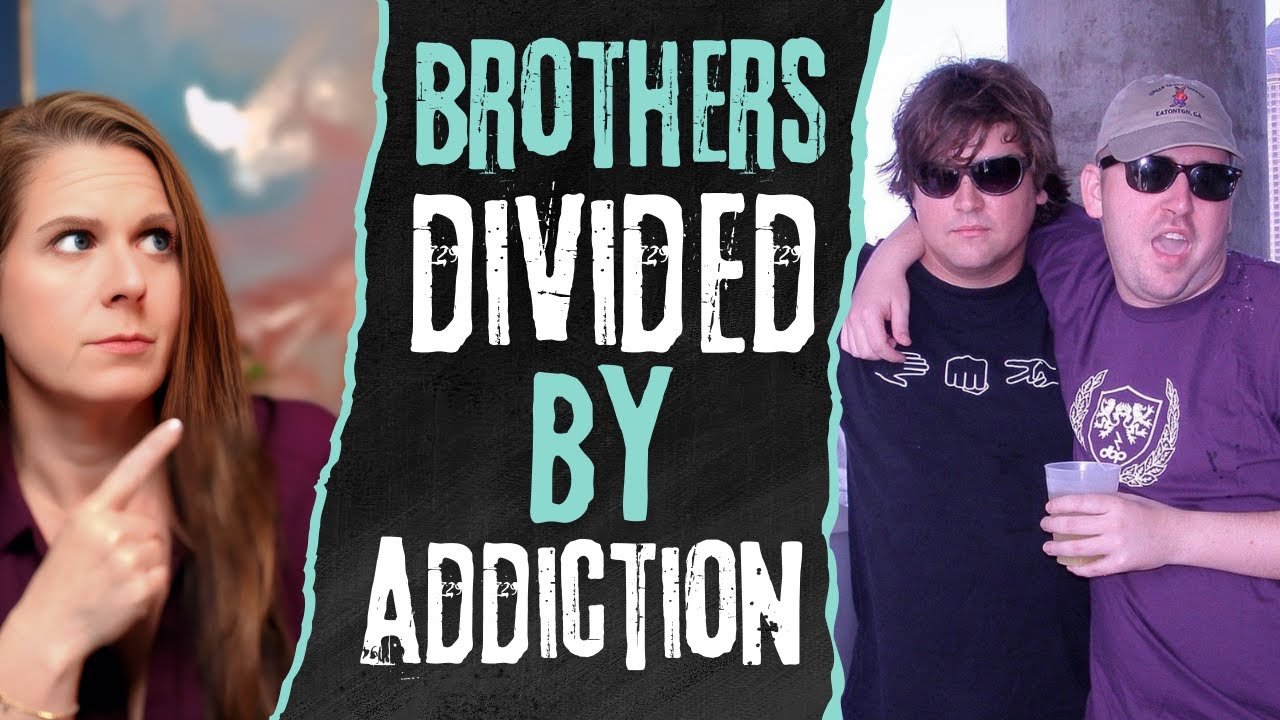Why They Keep Choosing Addiction Over You
Are They Choosing Addiction Over You? The Neuroscience Behind Alcohol, Pills, and Broken Promises
If you’re reading this, chances are someone you love keeps choosing alcohol or drugs — and it feels like they’re choosing it over you.
Over your marriage.
Over your kids.
Over your peace.
And that hurts in a way that’s hard to explain.
You’ve probably thought:
-
How can they choose drinking over our family?
-
How can they see what this is doing to me and still keep going?
-
Why am I coming in second place to a substance?
Let me say this clearly:
You are not crazy for feeling this way.
The rejection feels real.
The abandonment feels real.
The betrayal is real.
But what if they’re not actually choosing addiction over you?
What if something else is happening inside their brain?
Understanding this could completely change how you approach addiction in your relationship.
The Addicted Brain: What Neuroscience Really Shows
Here’s what most partners don’t realize:
When your lo...
Accountability vs. Surveillance: What Actually Rebuilds Trust
Why Being the “Alcohol Police” Is Destroying Your Relationship (And What Actually Works)
You never applied for this job.
You didn’t sign up to be the alcohol police in your own home—but somehow, that’s exactly what you’ve become.
You’re counting drinks.
Checking the recycling.
Smelling their breath.
Watching the clock to see when they pour that first glass.
And even when they’re “doing better,” you’re exhausted.
Today, we’re talking about why monitoring doesn’t work, how it quietly destroys relationships, and what actually helps instead.
How This Role Sneaks Up on You
This didn’t start because you wanted control.
It started because:
-
Promises were broken
-
“Just two drinks” turned into five
-
“I’ve got this handled” turned into another letdown
So you started paying attention—because someone had to.
At first, it felt responsible. Like helping. Like protecting your family.
Now?
You feel like a detective in your own home—and you hate it.
One woman told me she ch...
Alcoholic or Problem Drinker?

Am I a Problem Drinker or an Alcoholic? Why the Label Doesn’t Matter
One of the most common questions people ask when they start questioning their drinking is this:
“Am I a problem drinker or an alcoholic?”
It feels like an important question — because if you’re just a problem drinker, maybe you can fix it on your own. But if you’re an alcoholic, that sounds like a whole different level.
Here’s the truth most people don’t hear often enough:
👉 The label doesn’t matter.
👉 What matters is whether alcohol is causing problems in your life.
And if it is, you don’t need to spend months (or years) debating definitions. You just need to decide what to do next.
Why This Question Keeps You Stuck
The word alcoholic carries a lot of baggage.
For most people, it brings up a very specific image:
-
Someone who’s lost everything
-
Someone who drinks first thing in the morning
-
Someone who can’t function at all
So if that’s not you, it’s easy to tell yourself:
-
“I’m not that...
Grieving the Person You Thought You Married
Ambiguous Grief: Mourning an Addicted Spouse Who Is Still Alive
One of the hardest parts of loving someone with an addiction isn’t just the drinking, the using, the mood swings, or the unpredictability.
It’s the grief.
A grief almost no one talks about.
Because the person you’re grieving is still alive—and still standing right in front of you.
What Is Ambiguous Grief?
This experience has a name: ambiguous grief.
Ambiguous grief happens when you’re mourning someone who is still physically present but emotionally unavailable or fundamentally changed. There’s no clear ending. No funeral. No casseroles dropped off at your door. No moment when the world agrees that you’re “allowed” to fall apart.
So instead, you keep showing up.
You keep functioning.
You keep hoping things will change.
And all the while, you’re grieving—quietly and alone.
This is one of the loneliest forms of grief there is.
What You’re Really Mourning (Even If You Can’t Put It Into Words)
Many people living wi...
Does ADDICTION Really CHANGE Your PERSONALITY? | Amber Reacts
How Addiction Slowly Changes a Person: Two Raw Reddit Stories That Reveal the Truth About Alcoholism & Recovery
Welcome back to Put the Shovel Down—the YouTube channel where we break down the science and psychology of addiction so you can understand what’s really happening in your life and in your family. I’m Amber Hollingsworth, and today we’re diving into two incredibly raw Reddit stories that reveal what addiction looks like from the inside and the outside.
These stories are uncomfortable. They’re emotional. And they’re going to hit you right in the gut—but they also shine a light on the truth about how alcohol and drugs can reshape someone’s personality, disrupt families, and ultimately point the way toward recovery.
Story #1: Can Alcohol & Drugs Really Change Someone’s Personality?
One Redditor asked a gut-wrenching question:
“Do alcohol and drugs drastically change someone’s personality, even when they’re sober?”
His story:
His wife—a woman he’d been married to for over 2...
Brenda's Story: How I Stopped Fighting the Addiction and Started Reaching My Son

Watch part 1 of Enzo's story here.
“We’re Out of Our Parenting Skillset”
When Brenda picked up her 16-year-old son Enzo from a homeless youth shelter after a drug-fueled road trip, she saw a glimpse of where addiction was taking him—the smell, the vacant eyes, the speed at which life was unraveling. Not long after, came the call every parent dreads: Enzo overdosed. Doctors told the family to gather—he might not live through the night.
This is a true, unfiltered look at a family’s battle with addiction (fentanyl, Xanax, and more), ADHD’s early role, failed starts with treatment, and the life-and-death turning point that led to a different path. It’s painful, honest—and ultimately hopeful.
Early Signs No One Teaches You to See
-
Gifted + ADHD (Twice-Exceptional): From third grade on, Enzo was bright, articulate, and also struggling. Meds muted him; no meds made school a war zone.
-
Family turbulence: Divorce felt “amicable” to adults, but for Enzo’s black-and-white thinki...
Living Through My Brother’s Addiction and Recovery| B. Reeves P2
 Read Part 1 first:
Read Part 1 first:

A Brother’s Story: Addiction, Family Bonds, and the Long Road to Recovery
Addiction doesn’t just affect the person using—it ripples through families, testing love, patience, and resilience. In this raw and heartfelt story, Dan Reeves opens up about growing up with his older brother, B, and the complicated mix of admiration, frustration, and hope that shaped their relationship.
B was—and still is—one of the smartest, funniest, and most charismatic people Dan has ever known. But beneath the charm was a long struggle with alcohol and opioids that nearly cost B everything.
Growing Up Together
Dan and B Reeves were inseparable as kids. They shared a wild streak, tested boundaries, and found themselves in situations that most teenagers eventually outgrow. But while Dan eventually slowed down, B’s “all-in” personality made him more vulnerable to the grip of addiction.
Their parents, though divorced, were loving and supportive, giving both boys the freedom to find th...
The THREE Options In Family Addiction Intervention | Most Choose WRONG
The Truth About Helping an Addicted Loved One: 3 Strategies That Actually Work
If you're trying to help someone struggling with addiction, you've probably been given the same old advice over and over again:
-
Use tough love and let them hit rock bottom.
-
Stage a dramatic intervention.
-
Or do nothing and hope they eventually want to change.
But what if there was a better, smarter fourth option?
An approach that doesn't wreck your relationship or your sanity but still moves your loved one toward recovery.
Option #1: The Tough Love Approach
You've probably heard this one before:
"Kick them out. Cut them off. Let them hit bottom."
It's been the go-to strategy for decades. And while it can seem empowering at first, here's the truth:
Tough love has a high emotional cost—and a low success rate.
Let's be real: addiction continues despite consequences. That's the definition of addiction. At the same time, natural consequences can play a role in helping someone see th...
How DENIAL Is QUIETLY RUINING You | Part 1 of Denial Decoded Series
How to Understand and Handle Denial: A Game-Changer for Dealing With Addiction
If you’ve ever felt frustrated trying to help a loved one who just can’t see how bad things have gotten — or if you’ve caught yourself minimizing your own unhealthy behaviors — you’re not alone. There’s a powerful psychological concept that explains this all too well, and once you grasp it, it will forever change how you handle denial in yourself and in others.
Welcome to Put the Shovel Down
Hi, I’m Amber Hollingsworth, creator of Put the Shovel Down — the YouTube channel designed to help you master the science and psychology of addiction so you can stay five steps ahead. With over 20 years of experience helping individuals and families overcome addiction, I’m here to remind you: You are NOT powerless.
Today, we’re digging deep into a truth about denial that most people overlook — and how you can actually work with it, not against it.
The Fancy Word You Already Know: Cognitive Dissonance
Let’s get st...
How To Turn Their Every "No" Into "YES" | Make Addicts Listen With This
How to Respond When Your Addicted Loved One Refuses Help: A Step-by-Step Guide
Are you exhausted from hearing excuses after excuses from your addicted loved one?
If you’re stuck in the frustrating cycle of “I’m not that bad,” or “I can quit on my own,” you’re not alone—and you’re exactly where you need to be.
This guide is going to give you the tools to not just cope with the resistance, but to navigate through it with confidence and strategy.
Let’s talk about how to stop spinning your wheels and start making progress—even when your loved one says they’re “not ready.”
🎯 Top 10 Excuses Addicted People Use to Avoid Getting Help
First, let’s call out the most common objections you’ve probably heard:
-
"I’m not that bad."
-
"I can stop whenever I want."
-
"I don’t have time."
-
"I don’t want to leave my kids/family."
-
"People will judge me."
-
"I've tried before and it didn’t work."
-
"I don’t want to talk to strangers."
-
"I’m not ready yet."
-
"I don’t tr...








